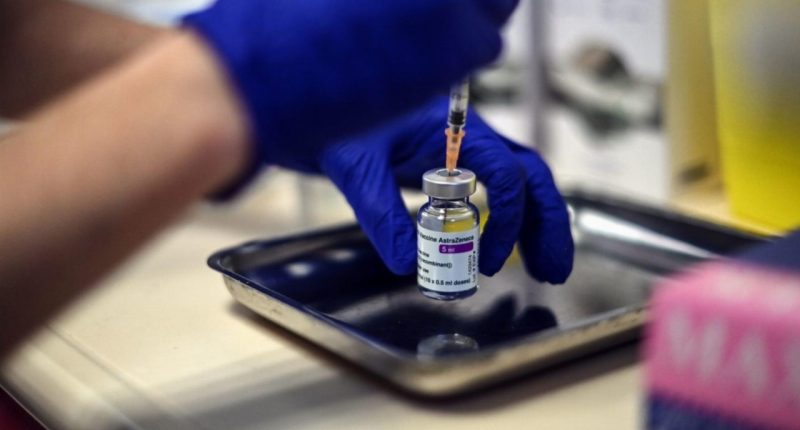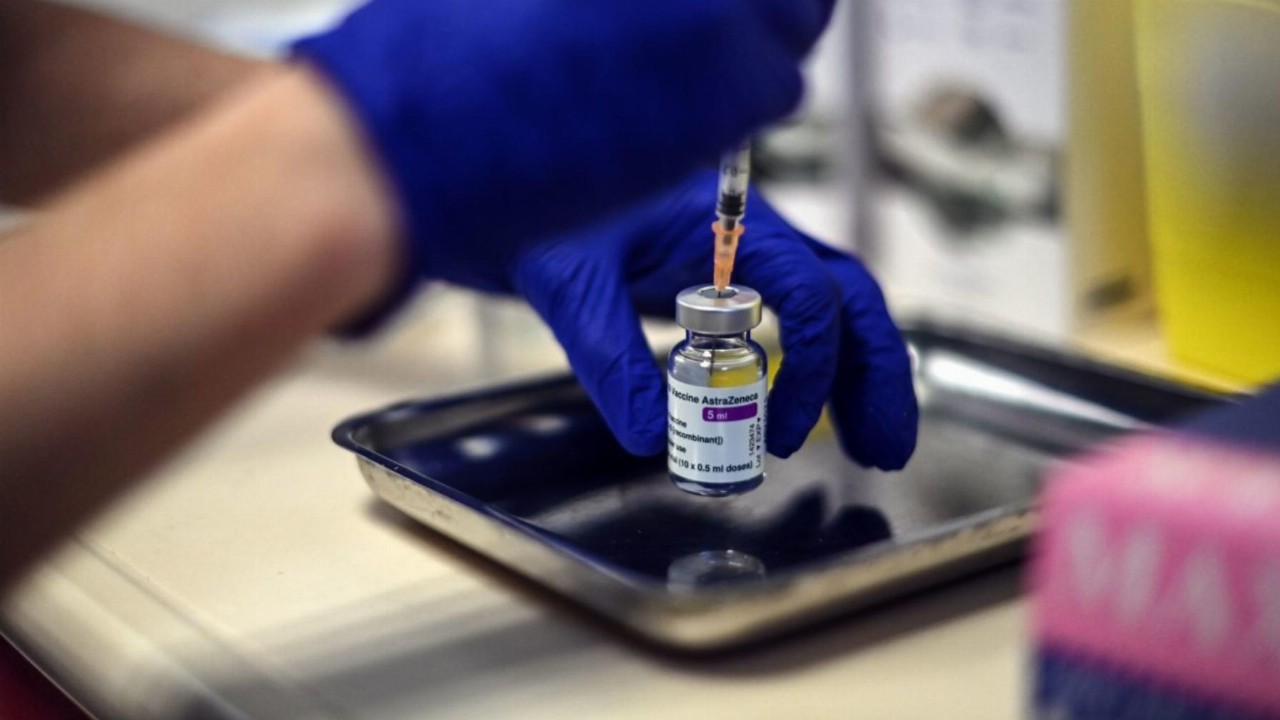- The Federal Government had decided against ordering any single-dose COVID-19 vaccines from drugmaker Johnson & Johnson, despite a shortage of jabs
- The Morrison Government is under increasing pressure to secure more vaccines for Australia after the AstraZeneca jab was ruled out for under-50s
- But, Health Minister Greg Hunt’s office said the Johnson & Johnson vaccine was too similar to AstraZeneca’s jab to be considered an alternative
- His decision comes as Australia recorded its first death from COVID-19 after an 80-year-old man from the Philippines died in hospital in Brisbane
- The deceased man tested positive for the virus late last month while in hotel quarantine and passed away on April 12
The Federal Government had announced it won’t be ordering any single-dose COVID-19 vaccines from drugmaker Johnson & Johnson.
The decision comes despite the Morrison Government falling under increasing pressure to secure more vaccines after the AstraZeneca jab was ruled out for under-50s due to a rare blood clotting risk.
But, Health Minister Greg Hunt’s office has told the ABC that the Johnson & Johnson vaccine, which is being used throughout the U.S., was too similar to AstraZeneca’s jab to be considered a viable replacement.
The government’s decision comes as Australia recorded its first death from COVID-19 in recent months, with an 80-year-old man from the Philippines dying in hospital in Brisbane.
Local health authorities said the deceased man tested positive for the virus late last month while in hotel quarantine in the state before he passed away while in hospital care on Monday, April 12.
Meanwhile, Labor has intensified its attacks on the Federal Government’s handling of the vaccine rollout — accusing it of “botching” the plan.
Former Opposition Leader Bill Shorten said the government must act to restore confidence in the jab rollout.
“It’s a very bad week for timelines for Australians. The reality is that Australians are being held hostage to a botched vaccine rollout,” he told Nine.
“I mean, people were hoping that the vaccines were a path or a ticket back to normal. But now we find out that travel might not be a thing until 2024,” he said.
“It’s really, I think, undermined the confidence of a lot of Australians, especially younger ones, in the vaccine program full stop. It’s very bad news,” he added.







